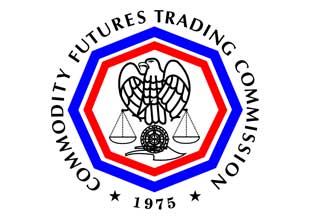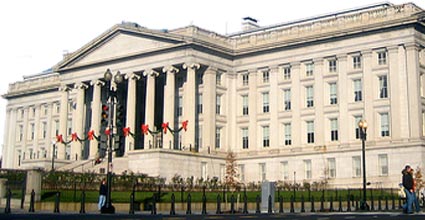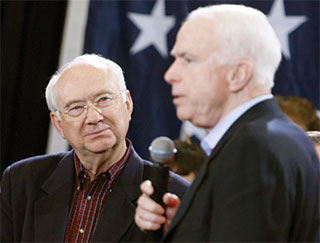
During his confirmation hearing last year, Scott O’Malia, a Republican Senate aide nominated to be a commissioner on the Commodity Futures Trading Commission, testified that while working for an energy firm years earlier, the “Enron debacle” had opened his eyes “to the very serious consequences of…inadequate oversight.” O’Malia, who’d been nominated by President George W. Bush, added, “I learned firsthand the devastating impacts a flawed market design can have on consumers and markets.” What he didn’t tell senators was that he’d learned all this as a lobbyist for a company engaged in Enron-like misconduct that had pushed for deregulation of energy trading. His appointment to the CFTC, an important watchdog agency that oversees the trading of agricultural and energy futures, was subsequently blocked for reasons unrelated to his nomination. But now O’Malia is back. The former lobbyist has been nominated to the CFTC once again, this time by President Barack Obama, who’s following a traditional practice and allowing the top Senate Republican—in this case, minority leader Mitch McConnell (R-Ky.)—to select candidates for certain seats on independent agencies.
O’Malia, now the Republican clerk of the Senate Energy and Water Development subcommittee, worked as an aide to McConnell for nine years before becoming the director of federal legislative affairs for Mirant, an Atlanta-based electricity company. At Mirant, according to House and Senate records, O’Malia was registered in 2001 and 2002 to lobby for deregulation on a number of legislative fronts, including repealing the Public Utility Holding Company Act, which limited the investments (or speculation) of electric, natural gas, and water utilities in areas beyond their core business. He was also signed up to lobby Congress on matters related to energy deregulation in California.
During the years O’Malia lobbied for Mirant—a spin-off of Southern Co., a major utility holding company—the firm was a key player in the Enron-driven energy crisis in California, intentionally withholding electricity from the state’s market. This drove prices sky-high, caused rolling blackouts, and, ultimately, a statewide emergency. According to a report by California’s Public Utility Commission, Mirant, one of the state’s top electricity suppliers, along with four other companies, “did not produce needed power even though their plants could have met California’s electricity needs.” That is, Mirant held back power when it was needed most.
Following this crisis and Enron’s collapse, Mirant, which had been one of Enron’s trading partners in the energy market, came under investigation by various federal and local authorities, including the Federal Energy Regulatory Commission, the Securities and Exchange Commission, and California’s attorney general. Soon, the company faced an onslaught of lawsuits alleging, among other things, that it had artificially inflated its earnings and manipulated California’s energy market. In 2005, Mirant, which was forced to declare bankruptcy in July 2003, agreed to pay the state around $500 million to settle claims that it had bilked California consumers during the electricity crisis.
Mirant’s business practices also drew scrutiny from the regulatory body that O’Malia now hopes to join. In 2004, the CFTC—which is supposed to protect consumers and investors by preventing misconduct in futures trading that could distort the prices of agricultural and energy commodities—fined the company’s energy trading subsidiary $12.5 million for attempting to manipulate natural gas prices by reporting false transaction information to industry publications compiling pricing data.
After Bush nominated O’Malia to the CFTC in April 2008, his confirmation hearing that June was a brief affair. Sen. McConnell introduced his friend and former staffer to the Senate agriculture committee with written remarks, noting that after he left the Senate and joined Mirant, O’Malia had gained “experience that makes him a superb candidate to fill the position that brings him before this Committee today.” The nominee was also praised by other GOP senators who had worked with him over the years. And Democratic Sen. Debbie Stabenow declared her support for O’Malia, a fellow Michigander, saying that she had known his parents for years.
Testifying before the committee, O’Malia mentioned that he had worked for Mirant, but gave a limited description of his job, saying that he had set up the “Committee of Chief Risk Officers” to develop practices to “put an end to the manipulative trading behavior deployed by Enron and others.” He said nothing about Mirant’s own manipulations or his work in the firm’s five-person lobbying shop in Washington, where he was also registered to lobby against environmental measures. Moreover, the material O’Malia submitted to the committee said he’d been a “director” for Mirant and had “developed a policy organization within Mirant and financial trade associations to bring together commercial interests, investor relations and legal staff to review federal legislative initiatives and develop the appropriate policy responses.” His résumé failed to note that he’d been one of Mirant’s top lobbyists. (Following his two-year stint at the firm, he returned to the Senate and worked on energy issues.) At the confirmation hearing, not one senator asked O’Malia about his role at Mirant.
Following the hearing, O’Malia and two other CFTC nominees seemed poised to win Senate approval—until Sen. Maria Cantwell (D-Wash.) stepped in. After the agriculture committee green-lighted the three, Cantwell blocked all the nominations, protesting what she said was the CFTC’s loose regulation of energy commodities markets. “To date, the CFTC hasn’t used their authority to police the oil and gas markets from possible manipulation,” she explained. “Until they do so, I will keep these holds in place.” O’Malia’s nomination eventually died in the Senate.
But the Obama administration has revived it. And this comes at a time when the White House is pushing a financial regulation reform initiative that would expand the CFTC’s power to monitor certain securities and cause the commission to become a more important player in policing the financial sector. And if Congress passes cap-and-trade climate legislation, the CFTC will also be responsible for monitoring trading in carbon derivatives. (In 2000, Republican Senator Phil Gramm, the chair of the Senate banking committee, and Clinton administration officials smothered a CFTC effort to regulate credit default swaps.)
Michael Greenberger, director of the CFTC’s division of trading and markets in the late 1990s, is puzzled that the Obama White House has brought back O’Malia. Under federal law governing independent agencies, two of the CFTC’s five commissioners cannot be members of the president’s political party. Usually these nominees are recommended by the senior leader of the opposition party—in this instance, McConnell. But, Greenberger notes, Obama could have challenged tradition and looked for non-Democrats with demonstrable commitments to protecting consumers and the markets:
The fact that O’Malia worked for an institution that was the focus of a major investigation and took advantage of loopholes in the regulatory apparatus raises serious questions. He doesn’t come with any credentials of being an expert economist or being an expert in regulatory laws and he will be in an agency that has been brought to the forefront of Obama’s new regulatory reforms.
Permitting McConnell to chose O’Malia for the commission, a White House official says, “is the sort of precedent that we defer to.” And in a press release announcing O’Malia’s new nomination last week, the White House made it seem he was qualified for the position, noting that at Mirant he had “worked to establish rules and standards for corporate risk management and energy trading.” There was no reference to his lobbying work or to Mirant’s wrongdoing. O’Malia did not return a call seeking comment. (Obama is also re-nominating two current CFTC commissioners, including Republican Jill Sommers.)
“The CFTC’s mission,” Greenberger remarks, “goes to the very heart of the prices we pay for the bread we put on the table and the fuel we put in our car. I can’t understand why the president would jeopardize that mission by appointing people who do not support his commitment to financial reform.”













